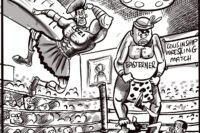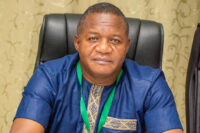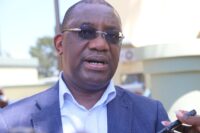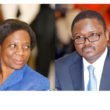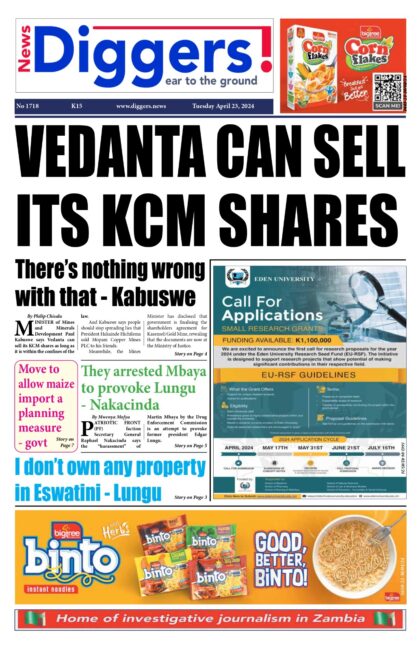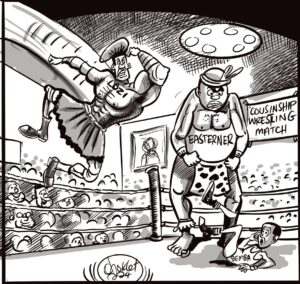UPND lawyer Mulambo Haimbe says Katuba member of parliament Aubrey Kapalasa has petitioned the Constitutional Court over President Edgar Lungu’s eligibility to contest the August general elections in his personal capacity, and has no blessings from the party.
In an interview, Wednesday, Haimbe said if at any stage UPND decides to take interest in the said matter or in the question of President Lungu’s eligibility, it would do so in a representative capacity.
“The court case which was commenced by honourable Kapalasa is in his personal capacity, it is not an action on behalf of the UPND. The views that have probably been taken will probably represent his personal views. If at any stage the UPND decides to take interest in the matter or in the question of eligibility, it will do so in a representative capacity as required by law. Initial perusal of the proceedings that have been filed [by Kapalasa] seem to suggest that Mr Kapalasa has taken a view which is contrary to that which has been expressed by experts such as John Sangwa. I have been on record, speaking personally as a legal practitioner, saying that in my view, the Republican President is not eligible. So, that is the question that will have to be determined,” he said.
Haimbe said there was still an opportunity for other people to seek interpretation regarding the aspect of President Lungu’s eligibility.
He added that Kapalasa’s action was not necessarily a bar to other institutions bringing different questions.
“Perhaps, a separate action with different questions will be commenced once the nomination is filed. Because that is a historical event which is different from the facts that existed at the time that the Concourt initially pronounced itself on this question. So, there is still scope for other persons to bring out certain questions and seek interpretations of the aspect of eligibility. An action such as this one is not necessarily a bar to a properly functioning jurisdiction. It is not necessarily a bar to other institutions bringing different questions. If a separate action is brought, two cases can be solidated and can be dealt with together. It is neither here nor there in terms of the questions that honourable Kapalasa has asked, should another person look at it from a different perspective and also seek interpretation,” Haimbe said.
“At this point, I am not aware of any specific instructions to that effect. We also take the view of other legal practitioners and I am not speaking from UPND when I say this, that the question of one’s decision to stand is a personal one. Which may not necessarily want to involve ourselves. Unless of course there is a legal principle that is to be pursued and determined and then we will be looking at it at the perspective of determining that legal principle rather than an individual who is seeking public office.”
On Tuesday, Kapalasa petitioned the Constitutional Court for an interpretation of certain provisions in the current Constitution on whether President Lungu is eligible to run as a Presidential candidate for the third term in this year’s election.
Kapalasa who cited the Attorney General as respondent in the matter, wants the ConCourt to interpret Articles 106(1), (3) and 106(6)(a) and (b) of the 2016 Constitution, as amended by Act No.2 of 2016, making it clear whether or not President Lungu or any person in his situation who was first elected in a by-election or any election which is not a general election is still eligible to run as Presidential candidate for the third time.
He said it was his belief, which had been fortified by legal consultation from within and out of Zambia, that President Lungu was still eligible to run as a candidate in the 2021 General Elections but that the lurking uncertainties was causing discomfort to him and many Zambians who had openly expressed themselves in the public domain.




